In an era dominated by social media and short-form content, you might wonder if blogging is still relevant.
“Should I start a blog in 2024?” is a question that crosses many minds, especially when it seems like every topic has been covered and every niche filled.
But here’s the truth: blogging isn’t just alive—it’s thriving, evolving, and more important than ever.
This blog you’re reading right now is proof.
Blogs continue to serve as powerful platforms for sharing ideas, building communities, and even launching careers.
But having your own blog doesn’t make sense for everyone.
In this post, we’ll explore the compelling reasons why blogging remains a vital tool for online success, along with the potential benefits, common concerns, and insights to help you decide if blogging is the right path for you.
From income opportunities to personal growth, from establishing expertise to connecting with a global audience, the world of blogging offers possibilities that are as diverse as they are exciting.
What a Blog is (and What It’s Not)
Before diving into the reasons to start a blog, it’s crucial to understand what exactly a blog is—and what it isn’t—in 2024.
What a Blog Is
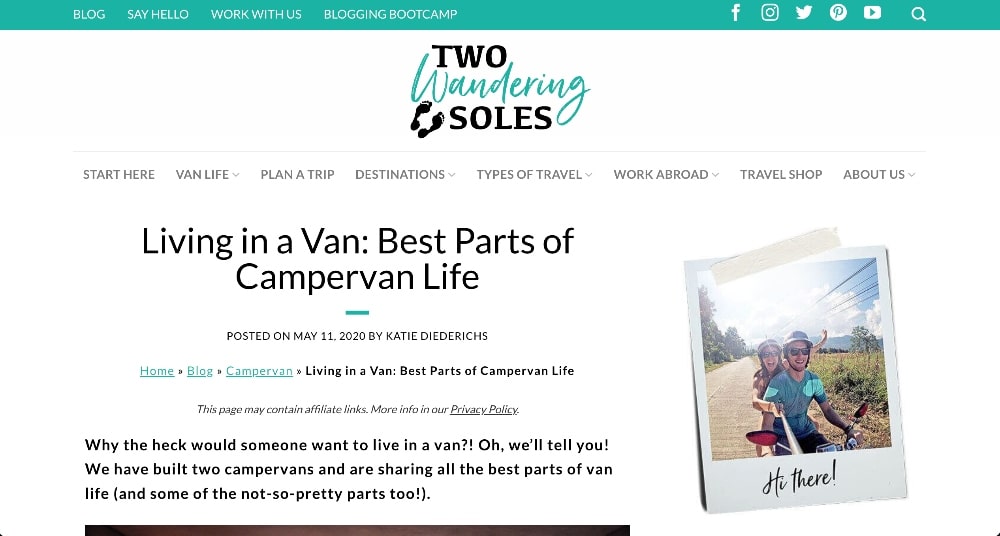
A blog, short for “weblog,” is a regularly updated website or web page, typically run by an individual or small group. It’s characterized by:
- Frequent Updates: Blogs are dynamic, with new content added regularly.
- Specific Focus or Theme: Most successful blogs have a particular niche or topic area.
- Interaction: Comments and social sharing allow for engagement with readers.
- Multimedia Content: Modern blogs often incorporate text, images, videos, and infographics.
A blogger is someone that owns a blog or writes for a blog.
What a Blog Isn’t
To clarify common misconceptions, here are a few things that you should know before you start a blog:
- Not a Social Media Platform: While blogs can be social, they’re not the same as other social media platforms like Facebook, TikTok, or Instagram.
- Not Just a Personal Diary: While personal blogs exist, many blogs are focused on providing valuable information to a specific audience on a specific topic.
- Not Static: Unlike traditional websites, blogs are regularly updated with new content.
- Not One-Size-Fits-All: Blogs vary widely in style, content, and purpose.
- Not Obsolete: Despite the rise of other content formats, there are still 8.5 billion Google searches every day leading people to blogs and websites.
Understanding these distinctions is crucial as you consider starting a blog.
As we move forward, keep in mind that a blog is what you make of it—a canvas for your ideas, a platform for your voice, and potentially, a launchpad for your goals.
Is Blogging Dead?
Before we get into our reasons to start a blog, let’s address the elephant in the room.
Many people wonder if blogs are still relevant right now.
The short answer is that they most definitely are, and no, blogging is not dead. However, it has evolved significantly in recent years.
I like the way reddit user u/Hey_nice_marmot_ put it in this reddit thread from a few years ago and it’s as true as it’s ever beem: “People have been saying blogging is dead for 15 years and yet people continue to make a success out of it. It’s not too late, although it is more competitive.”
Blogging remains a vital part of online businesses, but its form and function have changed to adapt to new technologies and user preferences. Here’s why blogging is still very much alive:
- Continued Relevance: According to SemRush, blogs are still one of the preferred content formats on the internet.
- Evolving Format: While traditional long-form blog posts are still valuable, successful bloggers are now incorporating various content types such as videos, infographics, and interactive elements to engage their audience.
- SEO Importance: Blogs play a crucial role in search engine optimization. Regular, high-quality blog posts can significantly improve a website’s search engine rankings, driving organic traffic.
- Authority Building: Blogs remain an excellent platform for individuals and businesses to establish themselves as thought leaders in their respective fields.
- Monetization Opportunities: Many bloggers continue to generate substantial income through various monetization strategies, including affiliate marketing, sponsored content, and digital product sales.
- Adaptability: Successful bloggers have adapted to new platforms and technologies, often using their blogs as a hub while expanding their presence to social media and other channels.
We’ll cover a few of these points in more detail throughout the article, but you can see that blogging is still really relevant in 2024.
While it’s true that the blogging landscape has become more competitive, and some forms of blogging (like personal diary-style blogs) have declined in popularity, blogging as a whole is far from dead.
It has simply transformed to meet the changing needs and preferences of online audiences.
Why Should You Start a Blog?
If you’re asking should I start a blog, chances are that are you already have some inkling of the financial freedom and time freedom that come from blogging, but the opportunities extend well beyond that.
We started out no differently than you — working a full-time job and wondering if it was possible to make it as a successful blogger.
We started blogging without any real idea what we were doing at first, but we figured it out along the way. Since then, we’ve turned our first successful blog into a 7-figure online business.
I think the most important thing you can understand about our story at Create and Go is that there is nothing inherently special about our backgrounds.
Other than being motivated and hard-working, we’re pretty average. There is nothing that we have that you don’t that can attribute to our blogging success.
Anyone can succeed in blogging as long as they are committed to their goals, want it badly enough, and put in the work to get there.
1. Potential for Income Generation
Let’s get this one out of the way. One of the most compelling reasons to start a blog is the potential for income generation.
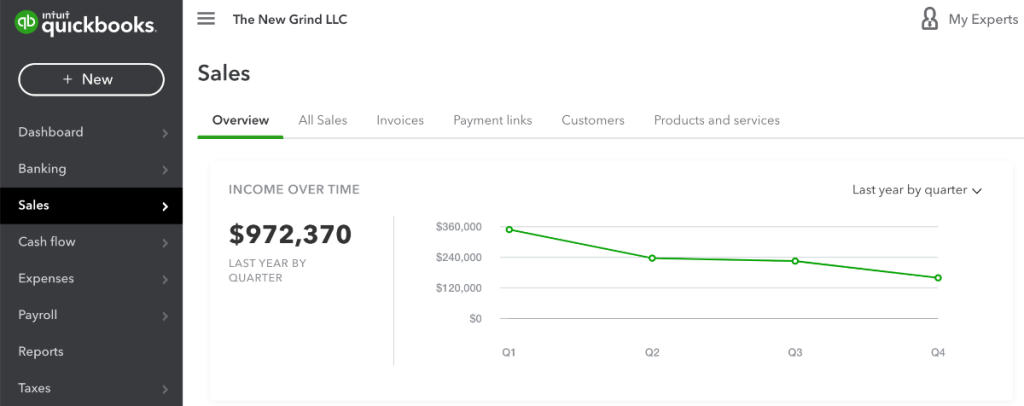
While it’s important to note that blogging isn’t a get-rich-quick scheme, it can provide significant financial opportunities for those who approach it strategically and persistently.
Diverse Monetization Strategies
There are a lot of ways to make money with a blog:
- Advertising: Display ads through networks like Google AdSense or MediaVine can provide passive income based on traffic.
- Affiliate Marketing: Promoting products or services and earning commissions on sales is a popular method among bloggers.
- Sponsored Content: As your blog grows, brands may pay you to create content featuring their products or services.
- Digital Products: Selling ebooks, courses, or printables related to your niche can be highly profitable.
- Coaching or Consulting: Your blog can serve as a platform to offer your expertise directly to clients.
- Memberships or Subscriptions: Offering exclusive content or communities for a fee can create recurring revenue.
How Much Money Can Blogs Make?
While earnings vary widely, you can make a lot with a successful blog, depending on how you run it and what you sell.
- Some niche bloggers earn $5,000 to $10,000 per month from a combination of advertising and affiliate marketing.
- Top bloggers in competitive niches like finance or travel can earn six or seven-figure incomes annually.
- Even part-time bloggers often report supplementing their income by $500 to $2,000 per month.
Factors Influencing Income Potential
Several factors can impact your blog’s earning potential:
- Niche Selection: Some niches, like personal finance or health, tend to be more lucrative.
- Traffic Volume: Generally, more visitors mean more income opportunities.
- Audience Engagement: An engaged audience is more likely to trust your recommendations and purchase products.
- Content Quality: High-quality, valuable content is key to attracting and retaining an audience.
- Monetization Strategy: Diversifying income streams often leads to higher overall earnings.
2. Establish Yourself as an Authority Figure
In the online business world, establishing yourself as an authority figure in your field is more valuable than ever.
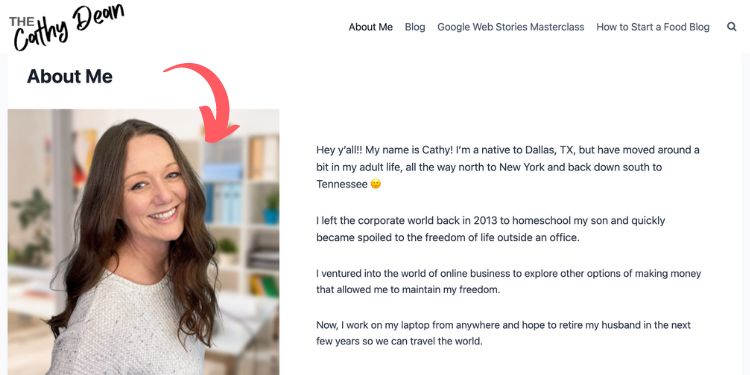
A blog is the perfect platform to help you do this:
- Demonstrate Knowledge: Regularly publishing in-depth, well-researched articles allows you to showcase your expertise on specific topics.
- Share Unique Insights: Offer your personal experiences and perspectives to provide value that can’t be found elsewhere.
- Portfolio of Work: Your blog serves as a living portfolio, demonstrating your skills and knowledge to potential employers or clients.
- Media Opportunities: Established bloggers often receive invitations for interviews, speaking engagements, or collaborations, further boosting their expert status.
- Network: As your blog grows, you’ll connect with other experts in your field, opening doors to new opportunities.
- Career Advancement: Many professionals have leveraged their blogs to secure better job positions or transition into new careers.
- Business Growth: For entrepreneurs and consultants, a blog can be a powerful tool for attracting clients and growing a business.
By consistently sharing your knowledge through a blog, you can cut through the noise and establish yourself as a trusted voice in your field
3. Community Building (on Your Own Platform)
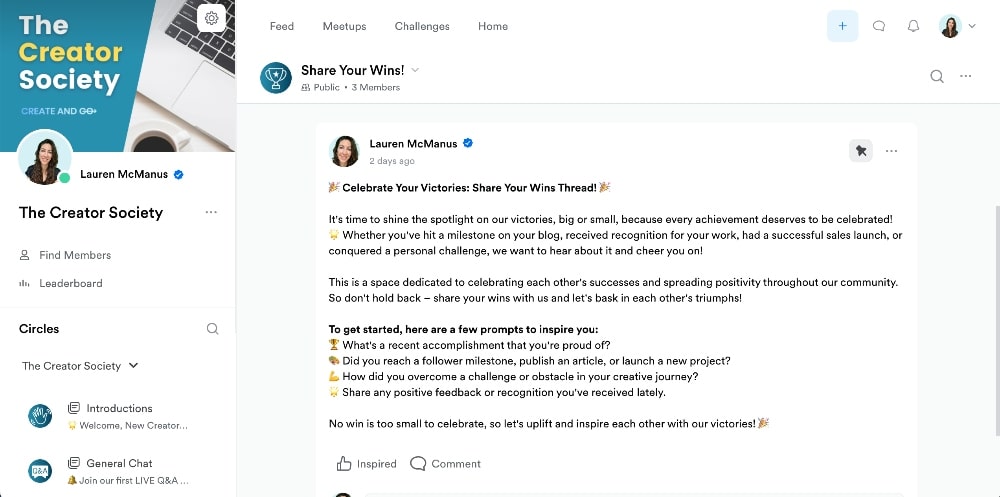
Building a community is more important than ever, and while social media platforms offer quick access to large audiences, having a blog provides a unique advantage:
It’s a space you own and control.
A blog serves as the central hub for your online presence, allowing you to funnel traffic from various sources into a platform where you set the rules.
Unlike social media platforms that can change algorithms or policies at any time, potentially disrupting your connection with your audience, a blog gives you stability and control.
When you build a community around your blog, you’re creating a space where your most engaged followers can interact more deeply with your content and with each other.
This environment fosters stronger connections and loyalty, as readers aren’t just passively scrolling through a feed but actively seeking out your content.
Additionally, a blog allows you a place for your audience to subscribe, giving you direct access to your audience without relying on third-party platforms. This direct line of communication is invaluable for nurturing relationships and promoting your content or products.
By focusing on building your community through your blog, you’re investing in long-term relationships with your audience.
You have the freedom to experiment with different types of content, engage in more nuanced discussions, and create a unique experience that reflects your brand and values.
4. Personal Growth and Skill Development
A blogging journey is about more than just sharing your thoughts online; it’s a journey of personal growth and skill development.
As you create and maintain your blog, you’ll find yourself acquiring and honing a diverse set of skills that can benefit both your personal and professional life.
First of all, we have writing skills. This one is pretty obvious.
You will learn how to write compelling headlines, structure your thoughts coherently, and adapt your writing style to your audience.
This improved communication skill is valuable in many aspects of life, from professional emails to personal correspondence.
Beyond writing skills, blogging introduces you to a range of technical and digital marketing skills:
- Web Design and Management: You’ll learn the basics of setting up and customizing your blog, including using content management systems and basic HTML.
- Search Engine Optimization (SEO): Understanding how to make your content discoverable on search engines becomes crucial for your blog’s growth.
- Digital Marketing: Experience in social media management, content strategy, and analytics becomes second nature as you promote your blog.
- Time Management: Balancing blogging commitments with other responsibilities develops discipline and organizational skills.
Blogging also contributes to personal development in less tangible but equally important ways. It can boost your self-confidence as you become more comfortable with self-expression and handling feedback.
The process of researching and writing about your chosen topics encourages continuous learning and deepens your expertise in your areas of interest.
Finally, the skills you develop through blogging are highly transferable. The ability to communicate effectively, manage digital platforms, and consistently produce quality content are extremely valuable skills that can benefit a variety of career fields.
Your blogging experience can enhance your resume and open up new career opportunities.
5. Flexible Work Schedule

One of the most appealing aspects to get started blogging is the flexibility it offers in terms of work schedule.
Unlike traditional jobs with fixed hours, blogging allows you to create and manage your content on your own time, fitting it around your lifestyle and other commitments.
Here are some key benefits of the flexible schedule that blogging provides:
- Work When You’re Most Productive: Some people are early birds, others night owls. With blogging, you can work during your peak productivity hours, whether that’s at dawn or midnight.
- Balance Multiple Responsibilities: For parents, students, or those with full-time jobs, blogging can be seamlessly integrated into your existing schedule. You can write posts during your lunch break after the kids are in bed, or on weekends.
- Location Independence: Blogging doesn’t tie you to a specific location. You can work from home, at a coffee shop, or while traveling the world. All you need is a computer and an internet connection.
This kind of flexibility can be life-changing. I, for one, will never go back to working a traditional office job now that I’ve had a taste of the free life.
But this kind of flexibility can come with its own set of challenges. Without the structure of a traditional job, you’ll need to develop strong self-discipline and time management skills.
Because you are also starting a new business, you may also find yourself working longer hours than anticipated as you build your blog and audience.
Despite these challenges, many bloggers find that the ability to control their work schedule is liberating. It allows for a level of freedom and autonomy that’s hard to find in many other professions.
Whether you’re using blogging as a side hustle or aiming to make it your full-time career, the flexible work schedule it offers can significantly enhance your quality of life and work satisfaction.
6. You Can Help Others
Perhaps one of the most rewarding perks of running a successful blog is the opportunities you get to help others.
Every blog post is an opportunity to provide informative and valuable information that can help others. You can help people understand their problems better and even provide solutions to those problems.
We have helped people earn over $50,000 in a single month with our blogging course. That’s life-changing money.
Cathy Dean, of Avocadu, has helped people lose over 100 pounds with her weight loss program. Losing one hundred pounds is also life-changing.

Receiving testimonials and feedback from clients and customers who tell you how much you changed their lives makes every hard-spent hour building your business worth it.
7. Opens Doors for Other Opportunities
Another reason to start a blog is that it can be a platform that launches you into exciting new ventures and opportunities.
As your blog grows and gains recognition, you may find doors opening in areas you never anticipated.
- Speaking Engagements: Established bloggers are often invited to speak at conferences, workshops, and events related to their niche. Your blog serves as proof of your expertise, making you an attractive choice for organizers looking for knowledgeable speakers.
- Book Deals: Many successful bloggers have parlayed their online presence into book deals. Publishers are often on the lookout for authors with established audiences, and your blog can demonstrate your writing skills and the demand for your content.
- Media Appearances: Journalists and media producers frequently turn to bloggers as expert sources for articles, interviews, or TV appearances. Your blog can position you as a go-to authority in your field.
- Consulting and Coaching: As you build your reputation through your blog, individuals and businesses may seek your expertise in a consulting or coaching capacity. This can lead to lucrative opportunities to work directly with clients in your area of expertise.
- Partnerships and Collaborations: Other bloggers, brands, or businesses in your niche may reach out for collaborations. These can range from co-created content to joint business ventures.
- Entrepreneurial Ventures: The skills you develop through blogging – content creation, digital marketing, audience building – are invaluable for starting other online businesses. Many bloggers use their experience to launch e-commerce stores, online courses, or digital agencies.
- Travel Opportunities: For travel, food, or lifestyle bloggers, opportunities for sponsored trips or restaurant reviews can arise, allowing you to explore new places and experiences.
- Networking: Blogging connects you with like-minded individuals, industry leaders, and potential mentors. These connections can lead to unexpected opportunities and collaborations.
My first “real” blog, Busy Living Better, opened so many doors for me. While that particular blog never made more then $3k a month at it’s peak, it helped introduce me to clients, companies, and opportunities that would have never been available to me otherwise.
Your blog allows you to be a part of a “scene” to contribute to a specific area you care about and want to work in and by putting in the work you’d be surprised to see what can develop from something as simple as writing and publishing on the internet.
As you build your blog, remain open to possibilities and be prepared to seize opportunities when they arise.
8. You Can Get Started for Just $23
One of the most attractive aspects of starting a blog is its incredibly low barrier to entry, especially when compared to traditional business start-ups.
While launching a brick-and-mortar business or even many online ventures can require significant capital, you can start your blogging journey for less than the cost of a nice dinner out.
With web hosting providers like Bluehost, you can get your blog up and running for just $23.
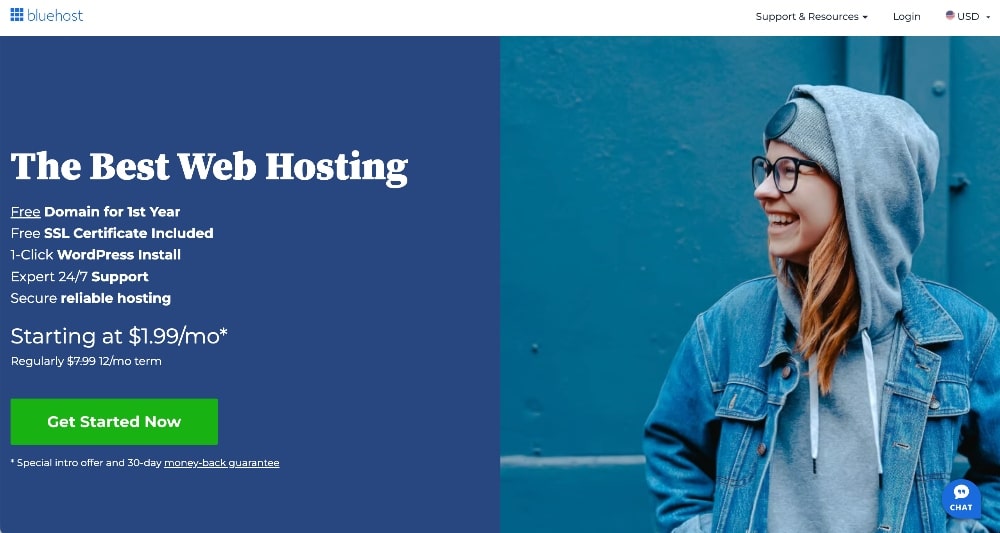
This small investment covers your domain name and hosting for the first year, giving you everything you need to set up your website.
We’ve been using Bluehost for multiple years on multiple websites. They’re one of the best and most affordable hosting companies in the industry, and they also have 24/7 customer service to help you with anything you need to get started.
You can start a blog with Bluehost with our tutorial here.
Here’s why this is such a game-changer:
- Low Financial Risk: The minimal start-up cost means you can test your blogging idea without risking substantial financial resources.
- Easy Setup Process: Bluehost and similar providers offer user-friendly interfaces that make setting up your blog a breeze, even if you’re not tech-savvy. Most hosts provide one-click WordPress installation, getting you from sign-up to a live website in minutes.
- Access to Free Tools and Resources: Once your blog is set up, you can leverage a wealth of free software and resources to enhance your site. More on that in a minute.
- Scalability: Start small and grow your investment as your blog grows. You can always upgrade your hosting plan or invest in premium tools later when your blog starts generating income.
- Low Overhead Costs: Unlike traditional businesses, blogging doesn’t require inventory, office space, or employees to get started, keeping your ongoing costs minimal.
Remember, while the initial investment is low, the potential returns can be significant. Many successful bloggers started with nothing more than a basic hosting plan and a passion for their topic.
The key is to start with leverage-free software while you’re growing and monetizing. Here are a few of our favorite software companies that offer free plans:
- Canva – Graphic design and images
- Perplexity – AI writing tool
- Kit – Email marketing
With such a low entry point, there’s really no reason not to give blogging a try if you have a message to share or a passion to pursue.
Click here to get our exclusive Bluehost discount and start a blog for just $23!
FAQs: Should I Start a Blog?
Conclusion
Blogging continues to offer unique opportunities for personal growth, professional development, and making a positive impact on others.
The reasons to start a blog are compelling:
- Blogging can generate income through various monetization strategies.
- It provides a platform for sharing your expertise and building authority in your field.
- It offers unparalleled flexibility in terms of work schedule and location.
- You can develop a diverse set of valuable skills applicable to many career paths.
- Blogging allows you to build a community and help others with your knowledge and experiences.
- It can open doors to unexpected opportunities in your personal and professional life.
Perhaps most importantly, starting a blog is more accessible than ever.
With minimal financial investment and user-friendly platforms, you can launch your blog and start sharing your voice with the world in no time.
Remember, success in blogging doesn’t happen overnight. It requires consistency, patience, and a willingness to learn and adapt.
But for those who persist, the rewards can be significant – not just in terms of potential income, but in personal satisfaction, skill development, and the connections you’ll make along the way.
Hey Alex and Lauren, I have read through and absorbed the majority of your content here on how to start my blog. Thank you for all the value and tools you offer! You offer clear direction to actually begin. My hangup is that I want to start two different blogs. If I follow your blueprint for Word press, hosting with Blue Host, etc., what would you recommend the best way to start two blogs? I understand the initial start-up costs needed to invest if I’m going to take it seriously, but don’t want to incur double start-up costs. What is your opinion?
The upgraded Bluehost plan will allow you to have multiple websites on a single account. You’ll have to research each tool you use to see if it makes sense to use a single account for both websites or to have two separate accounts. For example, we recommend have 2 ConvertKit accounts for 2 different blogs. We would not combine that resource for both.